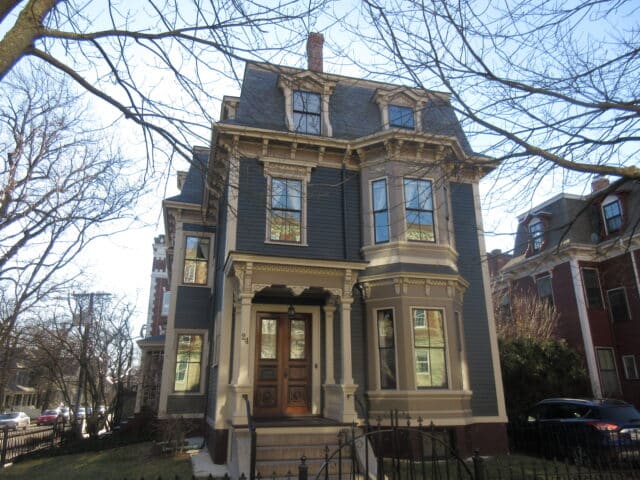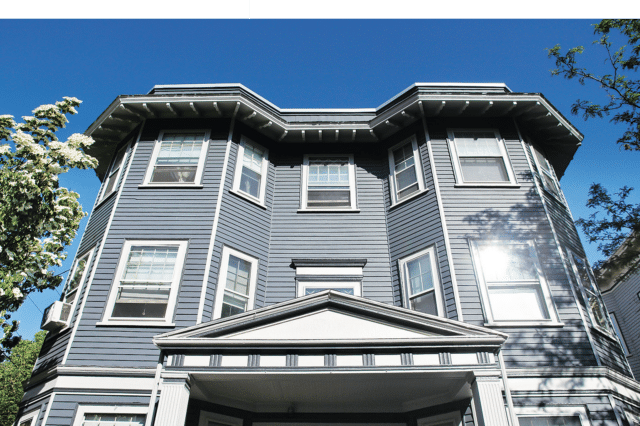
During a recent debate with her Republican challenger, Sen. Elizabeth Warren critiqued the idea that more private-sector housing development could curb runaway rents and home prices. iStock photo
It was one of the most telling exchanges of Democratic Sen. Elizabeth Warren’s debate with Republican challenger John Deaton.
And is so often the case these days, its significance blew right past what’s left of the mainstream media.
In response to a question on the housing crisis, Deaton, an attorney and cryptocurrency advocate, quite reasonably pointed to one of the main culprits for the shortage – onerous local zoning and other regulations.
Deaton argued local regulations needed to be reformed so the private sector can build more housing – a statement that a pragmatic progressive like Gov. Maura Healey wouldn’t quibble with.
However, apparently the mention of those two words – “private sector” – had the effect of waving a red flag in front of Warren, eliciting from the senator one of her famously tart retorts.
“That’s what they’ve been saying for decades now, and the price goes up, and up, and up,” Warren said in response to Deaton’s reference, according to Boston.com.
Warren’s Home Value Up Eightfold
If anyone should know about escalating home prices, it would be Warren.
A former Harvard professor, Warren has lived for decades in Cambridge, where the median price now tops $2.2 million, according to The Warren Group, publisher of Banker & Tradesman.
By that’s nothing compared to what has happened to the value of her spacious, 1890 Victorian in Cambridge’s leafy Avon Hill neighborhood.
It’s jumped eight-fold since Warren and her husband, Bruce, bought the two-bed, three-and-a-half-bath home in 1995 for $447,000.
Today it’s worth nearly $3.9 million, according to both Zillow and the city of Cambridge’s assessor’s office.
This astronomical increase in the value of Warren’s home and home prices in Cambridge more generally has not happened in a vacuum.
The city’s special blend of upscale NIMBYism and restrictive zoning laws and regulations has kept new house, condominium and apartment construction to a trickle at best, even as demand for living in the city has increased by leaps and bounds.

Sen. Elizabeth Warren bought her home for $477,000 in 1995. Today, it’s worth $3.9 million thanks in part to the intense demand for housing in Cambridge. Photo courtesy of the city of Cambridge assessor’s office
But State, Cities Haven’t Cut Red Tape
Warren’s retort suggests that the private sector has been talking a great game for years about being the key to solving housing crisis, yet failing to produce results – or worse, exacerbating the problem by greedily jacking up prices.
But the good senator, who was an accomplished scholar of the American economy even before her election, also must surely know there is a big difference between developers complaining for years about onerous local regs and actual legal and policy changes made to address these concerns.
It has only been in the last few years that state governments, first in California, and now in Massachusetts, have finally started to take action to rein in local obstruction of housing development along with fitful movement in some towns and cities here.
In Cambridge, even the most progressive of local pols now recognize that the city has a housing supply problem that is preventing real estate firms and nonprofits alike from building desperately needed new housing.
A pair of Cambridge city councilors are now pushing a proposal that would eliminate single-family zoning through the city, allowing new apartment and condo construction of up to 6 stories.
That in theory may even open the door to new multifamily construction in Warren’s own neighborhood, where nothing has been built for decades beyond the occasional mansion upgrade.
Where’s Warren in Cambridge’s Housing Debate?
That said, it is unlikely that Warren and her neighbors will be faced with an invasion by the hated private sector anytime soon, in the form of developers looking to build new housing.
Avon Hill’s status as a conservation district, combined with the unlikely scenario of a builder buying a multimillion-dollar restored Victorian in order tear it down to build apartments, makes it unlikely those sweeping zoning changes will much of an impact there.
Still, that hasn’t stopped a fierce debate in Cambridge over the proposal.
Meanwhile, Warren, even as she takes stands on local issues like a ballot question on repealing the MCAS test high school graduation requirement, has been silent on the housing debate roiling her hometown.
Paul Toner, a veteran Cambridge city councilor, said he has not heard a peep from Warren on this or any other Cambridge housing issue.
“In my three years on the Cambridge City Council I am not aware of her being involved in any conversations or made any statements about local housing in Cambridge other than general statements about need for more housing as a national and state issue,” Toner said.
I reached out to Warren’s office for comment but did not hear back by Banker & Tradesman’s deadline.

A small apartment building in Cambridge. Support for expanding multifamily housing by-right was widespread among candidates for Cambridge office in a 2023 questionnaire. iStock photo
Warren Looks to the Wrong Sector
Maybe it’s unrealistic to expect Warren to start talking about the need to cut regulations, even if we are talking about anti-development local zoning that many progressives have come to hate as much – or more – than the housing builders they constrain.
Warren clearly believes there is a housing supply problem, having said so much herself during that recent debate.
But she her vision for solving the crisis would have the government play a leading role, not the private sector.
Warren this summer reintroduced her $500 million American Housing and Economic Mobility Act bill in the Senate.
The core of the proposal involves a $44.5 billion federal outlay each year for a decade to plus up the national Housing Trust Fund, which states can use to build, renovate and preserve housing for families at or near the poverty line.
While arguably a worthy effort, it’s not going to solve the housing crisis on its own.
Basically, this is public housing we are talking about, not homes for middle-class families that make up the bulk of the American economy.

Scott Van Voorhis
The Math Doesn’t Work
And there is also another warning here from Cambridge, Warren’s adopted hometown, about her desire to have the government, not the private sector, lead the way in solving the housing crisis.
The Cambridge Housing Authority is spending nearly $900,000 to build each of the 278 new apartments it plans for the site of the Jefferson Park public housing project, the Cambridge Day has reported.
Now multiply that by the 200,000 new houses, condos and apartments we need in Massachusetts, and you arrive at $200 billion.
That’s a staggering sum, half the money in Warren’s national housing plan.
Whether Warren likes it or not, when it comes to the housing crisis, we need the private sector, not government, to lead the way.
Scott Van Voorhis is Banker & Tradesman’s columnist and publisher of the Contrarian Boston newsletter; opinions expressed are his own. He may be reached at sbvanvoorhis@hotmail.com.






